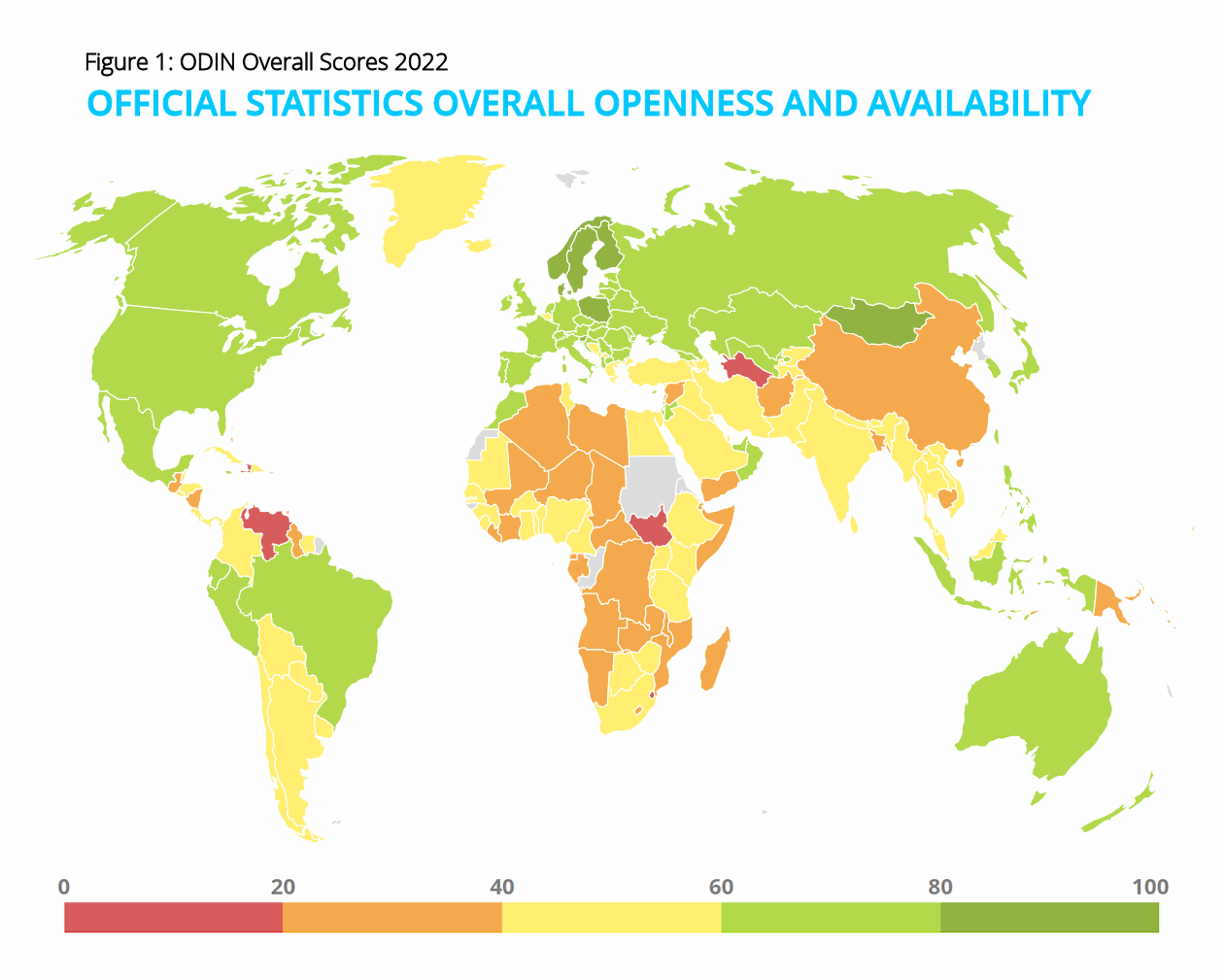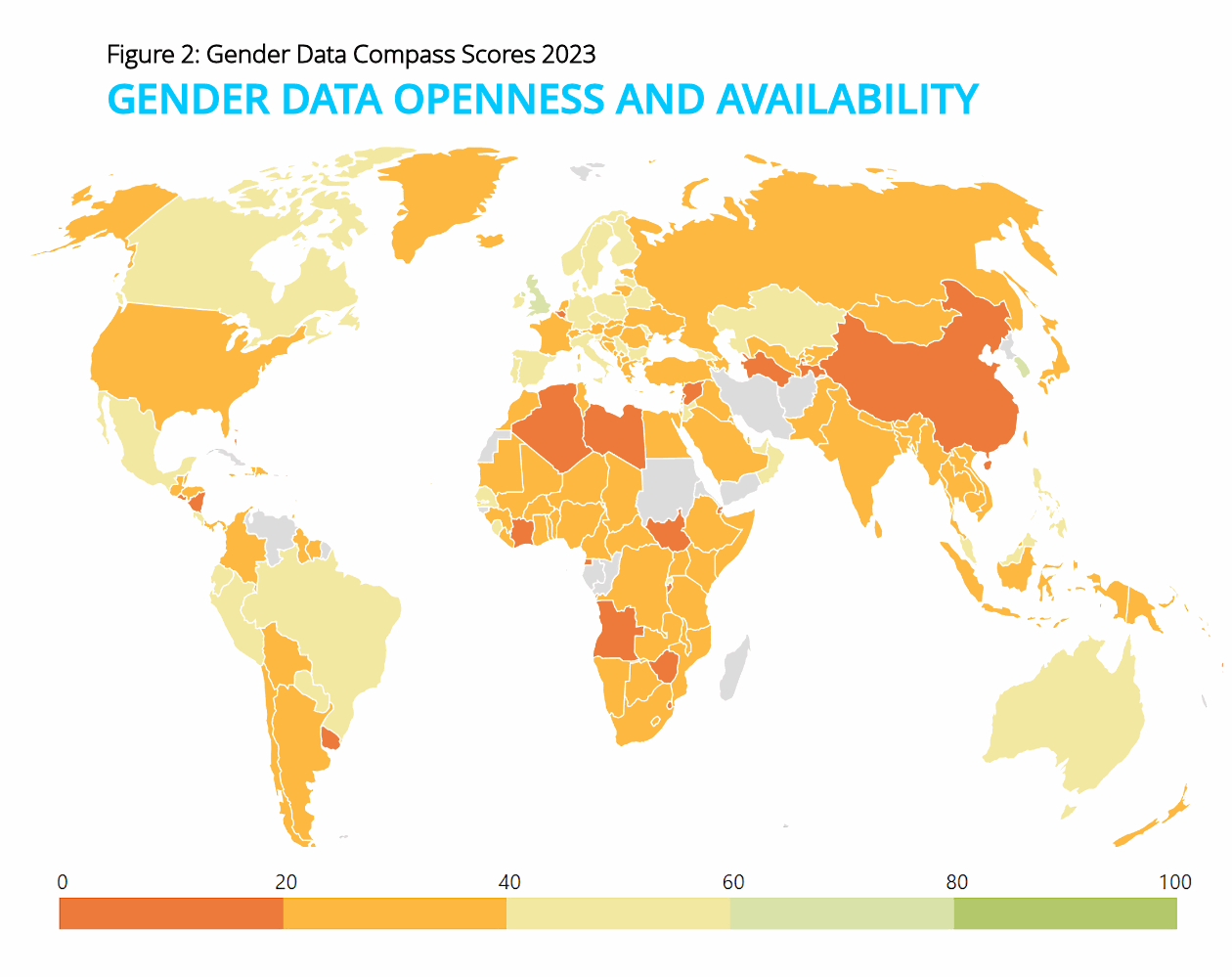Celebrating Open Data Week
by
the Open Data Watch Team
1 March 2024
Open Data Day will be officially celebrated from March 2 to 8 this year. But at Open Data Watch (ODW), as our name suggests, we celebrate all year long. To commemorate this week, we’re taking a moment to explore five important ways we improve open data through policy guidance, data support, monitoring and assessments. All these activities come together to amplify data use and drive meaningful impact in individual lives.
Monitoring the state of open data around the world with the Open Data Inventory
Our Open Data Inventory (ODIN), the flagship product of ODW, evaluates the availability and openness of data within national databases, guiding countries on how to enhance open data accessibility for policymakers, journalists, academics, and the public across over 190 countries. Despite significant strides since our assessments began, our latest ODIN 2022/23 report reveals a concerning trend of reduced data availability and slowed growth in openness. Compared to the 2020 assessment, the median score of all countries has only risen by 2.1 points, marking the smallest increase since 2017, with approximately 40 percent of countries experiencing setbacks. While our recent report explores the root causes and dimensions of this setback, it also highlights remarkable progress made by many countries worldwide. As we gear up for the seventh round of ODIN assessments in Summer 2024, we’re committed to addressing this issue head-on and supporting countries
 .Explore the openness of official statistics
.Explore the openness of official statistics
Strengthening the openness of gender equality with the Gender Data Compass
Open data plays a crucial role in advancing gender equality worldwide. The Gender Data Compass serves as a valuable resource, offering insights into national gender data systems and their supporting environment. With information on 53 key gender indicators across over 180 countries, it highlights essential questions countries must address to enhance their gender data systems. These include the availability, accessibility, and openness of gender data, as well as the existence of policies promoting their open publication. However, the 2023 Gender Data Compass report revealed that 77 percent of countries scored below 40, with only 4 percent scoring at least 60 for data openness. This underscores the need for improvement, particularly in ensuring that gender data are freely accessible and usable. Through this initiative, we collaborate with countries to enhance data openness and drive policy that will positively impact lives. Find out why gender equality needs open data
Find out why gender equality needs open data
Generating knowledge and advocating on the global stage
ODW is a leading voice for policy initiatives in the data for development field through involvement in several UN data-related working groups on open data and data governance. ODW was a member of the United Nations Statistical Commission’s Working Group on Open Data and co-chaired the Open by Default workstream within that group. Since 2019, we have formally been shepherding the concept of open data through official UN processes and the open by default principle was endorsed at the 53rd United Nations Statistical Commission (UNSC). Through these advocacy efforts and more, ODW works to demystify the concept of open data and share resources that promote data openness and transparency while maintaining citizen privacy and protection.
Explore 10 FAQ on open data and top resources to answer
Exploring how open data intersects with new territories and issues
ODW is actively integrating the lessons learned from promoting data openness within established official data systems into emerging fields like artificial intelligence (AI), intersectionality in development data, and the utilization of citizen-generated data. By doing so, we ensure that the core principles of openness and transparency remain central as the landscape of data for development evolves. In the realm of AI, where the conversation often overlooks its connection to official statistics, we emphasize the importance of open data and transparency in predictive AI and modeling as open data serves as a crucial tool in ensuring fairness, accountability, and transparency in machine learning processes. While AI is still in its nascent stages within official statistics, we are closely monitoring its developments. We are also extending open data principles to novel areas such as citizen-generated data, which fosters a participatory approach to data collection and utilization. This approach broadens the sources of data beyond traditional channels and complements officially sourced data, enriching the data landscape and promoting inclusivity.
Read our top questions concerning AI and Open Data
Partnering with countries to build statistical capacity
ODW provides countries with technical assistance to improve their open data offerings. Since 2015, we have expanded our program to include direct engagement with national statistical offices to transform ODIN assessment results into practical policy and technical advice on data quality, sharing, and other best practices. Through these engagements, countries work directly with ODW experts to gain additional insight on how to best use their ODIN results and implement changes that not only result in improved open data systems, but also close the gap between data production and use. We’ve worked with African Development Bank and Inter-American Development Bank to provide direct support to countries in the respective regions.
Learn five lessons from open data workshops in Latin America and the Carribbean
Decades of research make it clear: Open data are critical in ensuring that information is accessible and usable to inform policymaking and development interventions. Through our work, we hope to contribute knowledge and resources to further this agenda. As we celebrate open data week this year, we look forward to a year of deeper country engagements, new research findings, and innovative tools to improve development outcomes for all.






